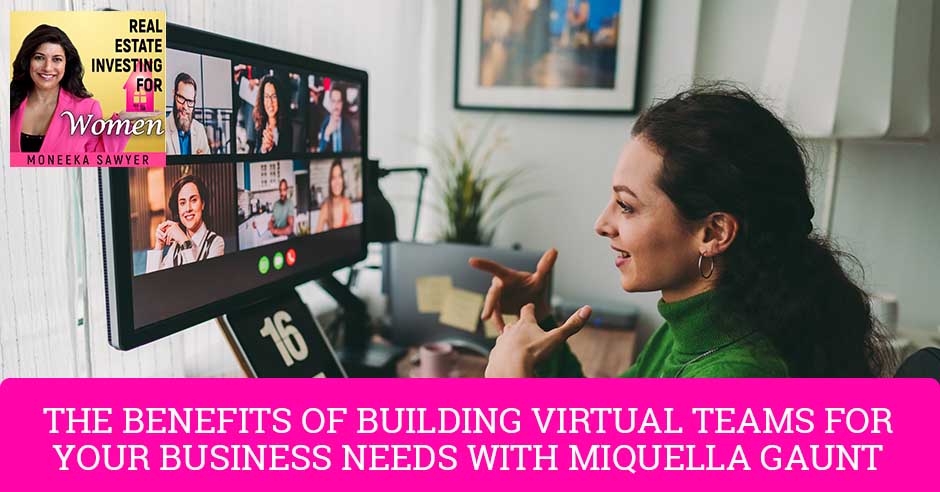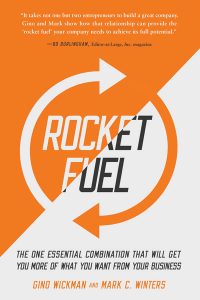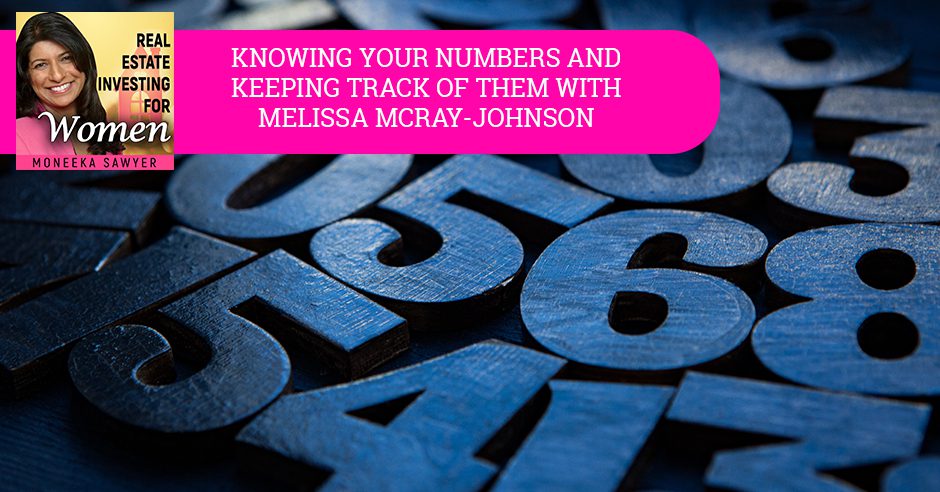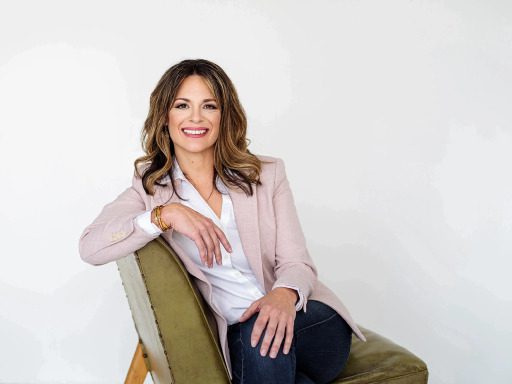The Benefits Of Building Virtual Teams For Your Business Needs With Miquella Gaunt

Technology has shown us so much of what is possible in the workplace. Pushed by the pandemic, more and more businesses and organizations are opting for hybrid work. Thus, we have virtual teams. And while a virtual team has multiple purposes, it always has a specific goal in mind. In this episode, Moneeka Sawyer interviews Miquella Gaunt of Backdraft Home Solutions about how they transitioned to virtual teams and how they are building them to help support their specific needs. She takes us across their hiring process and marketing avenues, then shares how they’ve adapted through COVID to now as we’re coming out to the other side of it. Plus, Miquella talks about the onboarding system she uses that helps her become the successful real estate investor she is now.
—
Watch the episode here
Listen to the podcast here
The Benefits Of Building Virtual Teams For Your Business Needs With Miquella Gaunt
Real Estate Investing For Women
In this episode, I am so excited to welcome Miquella Gaunt. This is what she says about herself. You ladies know that I read bios. Normally, I try to change it to the third person, but this bio is so sweet the way she wrote it, so I’m just going to read what she wrote. What she says is, “My new husband and I started this home buying solutions business to add value to families and the local community. We know what hard times are and we want to be a good option for people experiencing them, especially when the typical home selling process is complicated and lengthy.
We have created an amazing experience of relief for many families that we have worked with while connecting with them on a personal level. We have always thought with a positive mindset to impact our local community and calm people during times of stress and chaos. We are ready to stand by their side to accomplish their current goals, simplify their problems and make them suddenly organized, easy, and convenient so people can move on to a stress-free life they didn’t even know was possible.” Miquella, welcome to the show.
Thanks for having me.
We have a lot of people that talk about, “I do this business to help people.” Most of them mean it. You can tell a difference in people in how deep that goes in their heart. Some of it is they’ve been doing it so long so they’re like, “This is how I run my business,” and it’s not quite as connected to that anymore. They’re still out there doing those things, believing it, and feeling it, but it’s not quite as deep and connected to their heart as it might’ve been in the beginning when they started their businesses. I love the way that it came from your heart. I know that you’re young in this business and that energy is so inspiring. Thank you for that. Could you tell us high-level your story?
I wasn’t always in the real estate business. A lot of people always come and say, “My parents were in it and I was ingrained in it,” but I wasn’t. I came from a marketing side. My mom had a very successful marketing and advertising agency. I worked with her since I was thirteen making collection calls. She’s like, “You’re not busy for the summer. Come work.” Even as I got older, I was more on the project management side. I was running the orders or anything like that, but I got to see firsthand how my mom handled marketing for other businesses which helped in doing what we’re doing now.
After that, I went to work for another company that was in promotional retail merchandise. I was a project manager and operations. I was handling everything on the backend. That’s where I strive and am good at that. I met my now-husband. Talk about a visionary. If anybody has ever read the book, Rocket Fuel, it talks about the visionary and integrator. He is a visionary and I’m 100% the integrator.
You complement each other perfectly.
He comes to me sometimes with these ideas and I’m like, “What?” He’s got a big idea and I come in with how to implement it. He does as well, but it works. He originally started this business. He was a firefighter. Long story short in a custody battle for his baby girl and it was how do we make a lot of money to be able to afford attorney fees? Those things in family court rack up quickly. Both of us have read Rich Dad Poor Dad. He knew that real estate was where he want to go. I was already actively working on getting my license because I knew I wanted to end up in the real estate.
He started the wholesaling business. I ended up leaving my job to help him with his daughter. He ended up getting primary custody of her. I got to help raise a little baby girl. I decided that the retail side wasn’t for me. I liked the investing side better. I liked getting to help people because these are difficult situations for some people. Long story short, we got into it together and now we’re a few years in. We have grown exponentially. I can’t even imagine what’s going to be in store for us.
You are a client of Zack Boothe. Is that true?
Part of our original journey is we had done his Driving For Dollars course as the regular students and built our business off of originally Driving For Dollars and his whole process. As we grew, he saw that we were taking massive action. We ended up doing one-on-one coaching with him for about a year, which helped us break that learning curve and break through a lot of barriers. Instead of us having to learn by failure, he helped us through that. He married us. He was our officiant. It’s grown from a student -mentor to a best friend. I love him and his wife. That’s where we started and now we have what we have.
You can create culture without being face to face. Share on XThere are so many people out there that teach wholesaling. Why did you choose him?
We’ve chosen Zack originally because when we first started out, we didn’t have all the money to invest in buying these big lists. What everybody else talks about is buying tons of data and marketing to it. That takes a lot of money and extra money that we didn’t have at that time. We knew driving for dollars was the gateway into it where it just needed your time to go and drive around, find distressed properties, and the market to them. We took his course because we had seen everywhere that he was the driving for dollars guru of it.
We did his course which was great and made a lot of processes for that. Both my husband and I would go driving. We’d take turns. He’d go for an hour for a day. I’d go for an hour for a day. It started with that and then started ramping it up. We started getting some good deals. I remember we had one big deal coming in. Zack had randomly facetimed Aaron for some reason. He was like, “I just want to check on you. You’re one of my students. I don’t think we’ve ever talk to you one-on-one.” We talk to him about what was going on. Aaron was still at the fire department at the time because we had talked about, me being the very like, “I got to have the numbers in place.”
I was like, “Let’s make sure before you quit the fire department, we have reserves so our family is okay, especially since I wasn’t working anymore.” Zack called and Aaron had him on speaker and he’s like, “Your wife is probably going to kill me right now, but I’m going to tell you to quit now.” It was because we had a large deal coming in and it gave him the opportunity to. I remember Aaron got off the phone and I looked at him like, “He’s not wrong.”
Aaron was calling out of the back of his car. He’s at the fire department. He got in trouble for this too at the fire department in between calls, of course, not going to save people’s lives. He was in the back of the car making sales calls, cold calling, and trying to seal a deal. He did whatever it took. I’m like, “You’ve already done it this hard this far. Why not bet on yourself? Imagine if you had a full day where you weren’t out putting out fires or going on a medical call, what if?” The day the deal closed which gave us enough reserves for a little bit, he put in his two weeks. He said he kept refreshing his phone and as soon as it hit, he put in his two weeks and we haven’t looked back since.
How long ago was that?
That was in June of 2020.
How long have you been working with Zack when that happened?
The course was only a few months. Aaron started studying and going through different student courses in September of 2019. He did everything pretty quickly. Once he left the fire department, we started our actual one-on-one coaching with Zack in July of 2020.
It was less than a year from when you decided to go start the wholesaling thing and take Zack’s course to where you went full-time. Is that true?
Yeah. We don’t do anything smaller around here.

Virtual Team: We’re very big on “don’t message us on the side; keep it in the group because you never know somebody else that may have the same question.”
The thing that we’re going to talk about that you wanted to focus on was the whole idea of building a virtual team. We’ve had people come onto this show and talk about this before, but you have a little bit of a different perspective. Can you tell us a little bit about how you got to this? We were talking in the green room. I’d love for you to share that story with the ladies.
We originally steered away from the virtual. We’re both big on building a culture. We did feel like originally you needed people in the office to have that culture. It is a limiting mindset. You can’t create a culture without being face-to-face. We had a few cold calls. We had about four in-house for maybe five months. People’s lives changed. They had to go on their separate ways, which was fine. We loved everybody that was here. As we were trying to hire new people, it was hard. As Zack says it, “People in America just don’t want to work.”
I know that sounds so bad, but it was the most difficult thing. I was surprised. It blew my mind, first of all. The other thing was, even if we did, they didn’t have any experience in cold calling. It was the minimum wage in California plus then training somebody from the ground up, which takes a lot of time. We had listened to a podcast and again, somebody was talking about virtual cold-callers. Finally, we’re like, “We need to take the action and just try it.”
What’s the worst that’s going to happen? It doesn’t work and we go back to what we wanted. It’s not a big deal but we were very strategic with it. We had a hiring process. We had certain questions that were asked. We put them through training. We’ve built better training along the way as we’ve grown. It went from having four cold-callers in-house to, at one point, we had twenty virtual cold-callers.
We’re down about fifteen now, which we think is a good number. We took one of the cold-callers that was good. We put her as a manager. Now, she manages them. She trains and watches their numbers. She pulls them aside, “I listened to your calls. They need to be fixed here.” She now hires all of them. The reason why she’s able to do that is we also built processes and an onboarding process so that it makes it quick. It’s not, you have a sheet of paper and, “Do I send them this? Do I send them that?”
It’s all on a website that you just give them a login. The person goes through everything from, “Here’s the script. Here’s how you call,” down to, “Here’s how you log in to the WhatsApp group.” The WhatsApp groups are how we continue the culture. Everyone celebrates their wins. Our cold-call team is in one group. We tell everybody. They send a little bell emoji when they get a lead. They encourage and celebrate each other. That’s how we have found that keeps that culture that we wanted going. Everyone is able to hold everybody accountable. If one person has a question, we’re very big on, “Don’t message us on the side. Keep it in the group because you never know somebody else may have the same question.”
Also, a better answer because they’ve been through it themselves.
We’re quick to fire. If somebody is not matching that culture level, if they’re not taking instruction well, we get them out because we also know how toxic a bad worker can be for everybody else. We’re very uplifting people. We’d like to be uplifting, happy and encourage everybody. We want the best for everybody. We try to keep that as much as possible within our people.
You’re in California. Where in California are you guys?
We’re in Temecula. It’s in Southern California.
Is it in Burbank?
It takes money to spend money. You need to spend it to be able to make it. Share on XNo. We’re an hour from LA and an hour from San Diego. We’re right in the middle. It’s a little wine country.
You’re in Temecula and you’re doing the driving for dollars locally in that area. I want to point that out there. A lot of people that read this show and they read it over and over again, “You can’t invest in California.” I do. I like to make sure that I point out that people are doing this in California because as much as people think it’s difficult here, it can be difficult in a lot of places. Just because a market might appear difficult, it doesn’t mean that you can’t be successful. I wanted to point that out.
This market is difficult in its own way.
There’s no such thing as the perfect easy market. You might find something that’s perfect and easy in this way, but it’s going to have different challenges. That’s true for California too. My next question is, when did you decide to start hiring help? It sounds like your hubby Aaron was doing all the calls initially. You were trading off on dialing for dollars, but when did you decide to start hiring?
We hadn’t had an office yet. We were doing this at our little condo in our dining room. We had our big old whiteboard up in the dining room. We had no dining room. He originally did dabble in a little bit of the virtual cold-callers. I think it was two people, but it didn’t work out very well. It left a bad taste in our mouths and that’s why we didn’t. We were still in 2020. We went and saw Zack’s office around October of 2020. He came back going, “We need an office. We need to get this out of our house.” The office we got is only about 900 square feet. It’s nothing crazy, but it’s something where you disconnect. You’re not at home. We’re all guilty of doing it. I’m sitting there and trying to work and going, “I should mop the floors.”
“I got to get that laundry done.”
Let me go through the laundry real quick and I’ll come right back. Now your laundry and then your dishes. It doesn’t work. Even our day is we get up. We take our little one to preschool. We come into the office. We’re here from 8:00 to 2:30. We leave at 2:30. We pick her up and we’re home because we have that six or so hour that we focus and it’s the disconnect from the house.
Don’t you work after you pick up the little one?
We do. There are escrows going on. There are people calling all the time, but we try to come in and knock everything out for that six hours so that when we go home, it’s answering a text message or a phone call. After we saw Zack, we went out to Utah in October of 2020. We literally came back and I think within a week or two, we had an office. We started hiring cold-callers within the same month, but that was the in-house people. Our last in-house person was left around June of 2021 and then we went full virtual.
Was there a series of parameters that you use to make that decision to start spending the extra money on hiring help?
Is it for the in-house?

Virtual Team: We’re very big on pouring ourselves into all of our people.
It is for anything because that’s where you started.
We had to wait until we had some deals coming in and closing. We know that it takes money to spend money. I know it’s such a used saying, but it’s true. You need to spend it to be able to make it. We had to watch everything carefully. We are good about watching our spending and our marketing lists and where we’re at because we do believe in taking care of our people. If you take care of your people, your employees, and your team, it’s going to benefit yourself as well. We didn’t have a parameter of when to do it. It was just like, “We need to.”
First, you wanted to have in-house people and then you went virtual. Did you go with a virtual company or did you pick individual people? Tell me a little bit about how that worked out. How did you find the virtual people that you’re working with now?
We went on Upwork. Again, in a podcast or somebody posting or something, everyone talked about using this site Upwork. We would put our little job posting out there. People would apply. We had certain questions. You have to have Skype because we’ve learned that if they’re calling out of the country, they need Skype to connect to the platform we were using, which was Mojo Dialer. Have they called for investors before? He was throwing out a random questions to make sure that they were engaged. He said like, “What’s your favorite animal,” which had nothing to do with anything. It was more of like, “Are you answering the questions,” and to break up the interview a little bit.
He would then do an actual Zoom call with them to hear how they talked. You want to make sure, especially with cold-calling, that they speak clear English, that they can come across and not stumble on the script. After that, you hire them and we usually do about a month’s worth of probation per se, we were still watching their calls, critiquing, training or anything like that and then go from there.
You got them individually. There are a lot of companies that offer all of that virtual support for real estate companies, but you opted not to do that. You wanted to go with individuals. Why did you do it that way?
We could control a little bit more what they were saying. This isn’t for all the companies out there because I know some are different. We knew sometimes when they’re under a company, they are being trained a certain way. Not that our script deviates from that, but we want to be able to change it and have the flow with us. Their culture was more about working with us and not, “I work for this company that I’m contracted out to you.” It was more, “We’re a team.”
It does definitely create more work, but that’s why we made the systems and the processes that we do so that it’s simplified it over time to where now we have a cold-call manager. She posts the job out on Upwork. She sends out the Zoom interview. She goes through them and she hires them. The way she does it is exactly the way we would do it but because we wrote it down. We recorded every interview so she could see it and see how it should be so she could be in our minds so that we weren’t doing it. She was now doing it.
Does she work full-time?
She is full-time. She’s also virtual though, too.
When you started to hire these people, were they full-time? What were you offering them, 2 hours a day, 10 hours a week or 2 hours a week? How did that work initially?
If you take care of your people, your employees and team, it's going to benefit you as well. Share on XFor cold callers, we don’t like to have them calling more than 4 to 5 hours a day. I feel like, after that, it gets tiring. You lose that energy. We offered two shifts. You either can do the morning shift or the night shift. Each shift was 4 to 5 hours and 5 days a week.
Was that right from the very beginning?
At the very beginning, I think we only had done a night shift. As we added more, we split them up and did half and half. Half at night and a half in the morning.
People were getting pretty good hours immediately. They weren’t feeling motivated to fill the rest of their time with other clients. Would you say?
Not really. I think some of them had other clients and we’ve weeded through the ones that did because I’m not going to stop them from filling the rest of their time. You could hear in their calls that it was affecting them working with us. We also do benefit too if one of the leads they bring in converts into a closed contract. They get a little nice bonus for it as well. We try to incentivize as well too to keep the longevity there.
It’s interesting because you said, “I try to keep it to 4 to 5 hours because calling is hard.” If they’ve got three more hours in their day that they want to fill and they fill it with calls for somebody else, now they’re doing eight hours of cold-calling. Either you or the other client is going to feel that level of exhaustion that they experienced especially if they’re doing it every single day.
We track everything. We track the number of leads a day. We average it monthly. We always are on it and we’re always looking at the numbers because numbers, at the end of the day, don’t lie. We let somebody go because our manager was like, “This one person hasn’t gotten a lead in two weeks.” I’m like, “That’s not going to work.” This is not the first time we’ve had this conversation. Aaron’s like, “I did the cold-calling. I know what to expect.” We’ve done all the parts of our business. At the end of the day, we know what should be coming through.
We’re going on a little bit of a tangent because I know that you started this business basically right before COVID. You were building it through COVID and now we’re on the other side of that. Are you seeing changes in the business, both with the work ethic of the people that work with you and also with the numbers of leads that you’re getting and the people that you’re dealing with as far as doing the wholesale deals? Talk to me a little bit about all those three pieces.
No. We’ve ramped it up so much. The market, yes, is maybe shifting. How much? No one can know for certain. We did have a pause with COVID for about two months and then it skyrocketed. We watch the numbers and we know how many leads we need to get because we know how many leads it takes to get to a contract. Our morale of people has been great. I think that has a lot to do with how we approach everything. We want to hear people’s concerns. How we can do better? How can we be better for them?
We’re very big on pouring ourselves into all of our people from our cold-callers to our texters. We have five textures that are sending out text messages all day. I have one assistant. Lead managers are positioned. Everybody involved in our business, we try to set them up to be the best they can be because the best they can be will also benefit us. It benefits everybody around. We haven’t seen a drop in morale. If anything, we’ve seen more loyalty, enthusiasm, drive, and teamwork. Everybody definitely sees that we’re here for everyone and how hard we’re pushing. They want to push just as hard as we do.
Right now, you have a cold-call team of fifteen with one cold-call manager. There are sixteen on that team. You’ve got a texting team of six and you have a virtual assistant and a virtual lead manager. How many assistants and lead managers do you have?

Rocket Fuel: The One Essential Combination That Will Get You More of What You Want from Your Business
I have one assistant. She directly works under Aaron and me. She’s our go-to. She’s amazing. She handles everybody. We have two virtual lead managers. They’ll handle all the incoming leads, and filter the ones that are nonsense and the rest of them. We have two acquisition managers. Those ones are here in California. One’s in San Diego and one’s up in Northern California. He’s technically virtual. We have a dispo manager that sells the contracts once we get them under contract.
The acquisition managers, what do they do? They take the leads and they’re the ones that do the actual acquisition. Is that true?
They get it to a contract. We have around 40 to 50 leads coming in a day from all our avenues of marketing. A lot of them are just, “You called me. Give me an offer.” Our lead managers filter through those 40 to 50, find the ones that are serious about selling and pass them to our acquisition team. The acquisition team will dig deeper. They go over numbers, go through the condition, and then get it to send out a contract.
What are the different marketing avenues that you use? I know that you started with driving for dollars, but that’s not what you’re doing anymore. Is that true? What kinds of marketing stuff do you do?
A lot of what we do is pull lists. We still market to our driving for dollars. It’s on a much smaller scale now. We pull retired landlord lists, the notice of default, and tax delinquent. The three marketing channels we’re big on right now are cold-calling, texting, and direct mail. Also, a little bit of PPC, but that is a beast in and of itself.
What is PPC?
It’s Pay-Per-Click. It’s Google Ads.
I feel like we could just keep talking forever, but we can’t. What I see in you is this well-oiled machine. I love seeing that you’ve taken it from you were doing all this work to now you’ve got these systems and they help you to drive a really good business that’s helping people. Ladies, just so you know, one of the things that Miquella has offered is to talk about that onboarding system that she uses. It’s based on a particular website with a portal so that she can do all of this onboarding.
She can hand this over to her cold-calling manager that’s going to do the hiring. It’s a system. She’s going to be talking about that in EXTRA. I’m super excited to learn more about that. Ladies, stay tuned for EXTRA for that. Before we move into our three Rapid-fire questions, could you tell us a little bit about how people can get in touch with you?
I’m on Facebook and Instagram. My Facebook is Miquella Gaunt. On Instagram, the same thing, @MiquellaGaunt. Feel free to direct message me on any of those platforms. LinkedIn, I’m on there, but not really.
I know you were going to offer some free time with you. Ladies, this is interesting. Miquella doesn’t coach, but when she does take her time out of her schedule, you can see that she and Aaron make quite a lot of money. Their time is worth a lot. She normally will charge for phone calls to help coach people or get them started or whatever, but she did offer for the first five of you to call her and connect with her on Instagram. Mention that you came from the show and that you heard her on this show and then she’ll give you an hour of free conversation, which is incredibly generous. Thank you for that.
It’s a super tip to get started in anything, but be obsessed with it, take notice, and take imperfect action. Share on XWe literally were talking about this on our honeymoon.
I’ve got opinions about that. I’m not going to share that with you, but it’s still funny. This is one of the things. It’s like the blessing and the curse of working with your spouse. It’s hard to get away. It’s also necessary for the relationship to get away. There is all of that stuff. It sounds like you and Aaron are balancing that beautiful.
We’re similar but opposite enough.
Miquella was saying that she is the implementer and he’s more of a visionary. That’s a beautiful matchup.
I was telling you that in the book Rocket Fuel, when we read that, we were like, “This is why companies work because they need a visionary and integrator,” and I was like, “That’s why our marriage works.”
Miquella, you were going to offer a free trial for PropStream also. Could you tell people what that is? What is PropStream? Why is it valuable?
PropStream is your access to property information without having MLS or real estate-based sites that you can see listings on. It helps you be able to do comps and pull property information for different properties as far as who the owners are or if they have anything owed against the property. You can also use PropStream to pull lists. That’s where we have been pulling our lists from. They have a lot of great different filters down to the age of home, if it was bought in cash or under a mortgage. You can fine-tune in there if list pointing something you’re looking for. You can comp properties on there. It has a lot of that information. For the people that don’t have their license, that doesn’t have access to the multiple listing service, that’s your replacement for that.
That’s called PropStream. There’s a whole range of what you can sign up for PropStream. There is the just getting a list and then there’s, “I can get comps and everything.” There’s a whole range of things. I’m not sure exactly what you get for free, but it’s worth checking it out. I hear about PropStream from all the pros. I’m excited that you’re offering this free trial. Ladies, if you want to get that, go to BlissfulInvestor.com/PropStream. Check that out. Thank you for that, Miquella.
Anything we can do to give back.
Thank you so much for that. Ladies, you know that Miquella is a student and friend of Zack Boothe, who we’ve had before. If you’re excited about learning what she learned from him, you can still connect with him and his team. Go to BlissfulInvestor.com/Zack. You’ll get to talk to him or Stephanie, who you have already met. They do have someone else working on the phones, too. I trust that that person would be as fabulous as them. You can go to that link and set up a time to chat with them, and see if this business is a good fit for you. We saw what an amazing fit it’s been for Miquella. We’ve heard from Zack a few times. Here are our three rapid-fire questions. Give us one super tip on getting started investing in real estate.
I think it’s a super tip on getting started in anything. It’s to be obsessed with it and take imperfect action. You’re not always going to have the answer or know what the outcome’s going to be, but just do it. You’ll figure it out along the way. You may stumble and fall, but it’s better than not having done anything. It’s analysis paralysis. Many people get stuck in analysis paralysis. Stop over-analyzing it. Just do it.

Virtual Team: You’re not always going to have the answer or know what the outcome’s going to be, but just do it and figure it out along the way. You may stumble or fall, but it’s better than not having done anything.
What is one strategy to be successful as a real estate investor?
Systems, processes, and document everything. You don’t want to be doing everything yourself. We’re all about reading books. Another good book is Who Not How. Can you do it? Yes, sure, but isn’t that the best use of your time? The only way that you can hire something like that out is by documenting how you do something. The simplest way, you don’t have to write it. If you don’t know how to write an SOP or a standard operating procedure, log in to Zoom, record yourself, share your screen, and then go through what you’re doing. That way, when you have to explain it to somebody, it’s there. You can reshare the video instead of having to re-explain and retrain over and over again.
What is one daily practice that you do that you would say contributes to your personal success?
I do try to get some kind of exercise daily as best as I can. We’re up at 5:00, especially up before the little one because working out with her is not possible. She tries to help. She’s so cute. She’ll come down, try to hold the way and count for me, but then she gets bored and then wants to play. Even if it’s going on a treadmill, getting your body moving does clear your mind. When you do start your day, go at it with purpose.
My thing is lists. On my phone, I have a notepad on there a to-do list. Every time I think of something, I jot it down, “I need to do this one.” You don’t forget it and feel like, “What was I thinking?” You are feeling overwhelmed. We come to the office for six hours and it’s just work. It’s not an eight-hour day where I got a break here and then I take lunch. I’m literally at that computer for six hours nonstop going as hard as possible getting it all done for as much as I can.
Thank you for that. Miquella, this has been amazing. Thanks for all you shared at this portion of the show.
I’m more than happy to. If anybody takes anything from it, it makes me happy because I know there are probably questions out there. Some people may not know where to start. If I could even help start somebody’s drive and passion or anything, that is something that I try to do.
You’ve been so generous. Thank you. Ladies, we’ve got more. She’s going to generously share with us her onboarding system in the portal that she uses and how she puts that together for the entire virtual team. Nobody’s ever done this before so I’m super excited. If you are subscribed to EXTRA, stay tuned. There’s more. If you’re not, go to RealEstateInvestingForWomenExtra.com. You get the first seven days for free. You could download this episode and as many others as you like and stay or not. It’s totally up to you. For those of you that are leaving right now, thank you so much for joining us for this portion of the show. I look forward to seeing you next time. Until then, remember, goals without action are just dreams. Get up there, take action, and create the life your heart deeply desires. I’ll see you soon. Bye.
Important Links
- Miquella Gaunt
- Rocket Fuel
- Rich Dad Poor Dad
- Driving For Dollars
- Upwork
- Mojo Dialer
- Miquella Gaunt – Facebook
- @MiquellaGaunt – Instagram
- BlissfulInvestor.com/PropStream
- Zack Boothe – Past Episode
- Stephanie Holleman – Past Episode
- BlissfulInvestor.com/Zack
- Who Not How
- RealEstateInvestingForWomenExtra.com
To listen to the EXTRA portion of this show go to RealEstateInvestingForWomenExtra.com
——————————————————
Learn how to create a consistent income stream by only working 5 hours a month the Blissful Investor Way.
Grab my FREE guide at http://www.BlissfulInvestor.com
Moneeka Sawyer is often described as one of the most blissful people you will ever meet. She has been investing in Real Estate for over 20 years, so has been through all the different cycles of the market. Still, she has turned $10,000 into over $5,000,000, working only 5-10 hours per MONTH with very little stress.
While building her multi-million dollar business, she has traveled to over 55 countries, dances every single day, supports causes that are important to her, and spends lots of time with her husband of over 20 years.
She is the international best-selling author of the multiple award-winning books “Choose Bliss: The Power and Practice of Joy and Contentment” and “Real Estate Investing for Women: Expert Conversations to Increase Wealth and Happiness the Blissful Way.”
Moneeka has been featured on stages including Carnegie Hall and Nasdaq, radio, podcasts such as Achieve Your Goals with Hal Elrod, and TV stations including ABC, CBS, FOX, and the CW, impacting over 150 million people.
Knowing Your Numbers And Keeping Track Of Them With Melissa McRay-Johnson – Real Estate Women

When you know your numbers, you can map the business deal in your head, and you’re able to make smart business decisions on where to spend your money. Joining Moneeka Sawyer in today’s episode is Melissa McRay-Johnson, the Founder of E3 Coaching, LLC. Melissa further explains the importance of knowing your numbers and keeping track of everything to your success. Are your numbers going where you expect them to go? Tune in and learn from this discussion on how you can stay on top of your business.
—
Listen to the podcast here
Knowing Your Numbers And Keeping Track Of Them With Melissa McRay-Johnson – Real Estate Women
Real Estate Investing For Women
I am excited to welcome to the show, Melissa Johnson. Melissa has been flipping houses in San Antonio, Texas since 2003, growing and expanding the business into a thriving real estate investment operation. With over 1,000 houses flipped, she has also built a portfolio of rental properties and real estate notes while raising five children. She provides coaching support and education for other high-level real estate investors nationwide. As a Co-founder of the San Antonio InvestHer meetup group and an active member of the Forbes Council on Real Estate and the National Association of Women Business Owners, she is dedicated to the success and empowerment of women in business. Melissa, welcome to the show.
Thank you. I’m excited.
This is going to be a great conversation. This is a marketing conversation, right?
Yes. I love marketing.
I’m excited to have someone on the show that’s an active investor who is also going to be talking about marketing. There is a lot of crossover, but most of the time I have a marketing person on the show, they’re not an investor. I’m super excited about what you have to offer to my audience. Could you give me a high-level story about how you got into doing what you’re doing?

Knowing Your Numbers: Run the numbers ahead of time to see how you can map it all out.
Back in 2003, real estate was not on my radar at all. I was always interested in real estate, but I thought maybe an agent. I didn’t follow through with that at the time. I was working for a defense contractor and my husband at the time, his father was investing in real estate. We spent a lot of time with him and it seemed like he was having this great time all the time, traveling in his RV, taking time off and getting all these doors, rental properties and stuff. I’m like, “That’s pretty cool.” We talked about it and said, “Why don’t we try it? This could be something good for us.” It sounds fun. It’d be great to be our own boss and get out of the cubicle life. We started down that road pretty simply at first, doing it part-time while we were working. Eventually, my husband ended up getting laid off because we worked for the government and there were issues with contracts and stuff like that. It’s two weeks before our wedding, so I wasn’t freaked out at all. I was.
We rolled with it and we thought, “Maybe this is a push, we needed to do this full-time.” He went full-time. I stayed at the job for about six more months was about all I could handle. Before the jealousy, “This isn’t fair. I don’t want to be sitting at this desk, you’re out running, having fun and I’m here. It’s miserable.” I then quit. I have pretty much been doing that ever since doing different exit strategies. I have been rehabbing for many years, I’m building a portfolio again of the rental properties. I love notes, creating notes. The last few years I have been more focused on wholesaling because it has seemed to fit well with the way the market was going and stuff like that. A little bit of everything I’ve done throughout the years. I’m still real estate investing, but I am also moved into more of a coaching and mentoring space, which I’m enjoying. That was born out of this whole COVID thing. Time to reevaluate life, “What do I want to do?” I got divorced. That was a rough thing to go through. It was a time to reevaluate everything. Things are looking good now.
Tell me, what do you mean by you create notes?
I know a lot of people having rental properties and things like that, but I love doing seller financing and creating notes from that. It’s a great way for you to get passive income without all the headaches of the rental properties. With rentals, you’ve always got to worry about maintenance and there are taxes. Those calls, “Something is broken,” and the big-ticket things that have to be done. Maintaining all that stuff is a lot. What we found was that by creating notes, you’re still getting that passive income, except you’re making money now in a cool way because you’re collecting interest. You’re not on the hook for taxes or insurance. I hold back escrow for those things. That strategy has been nice, but I do have rentals too because it’s good to have a balanced portfolio, rentals for the depreciation, things like that. The notes for creating that long-term stuff. What I liked doing is creating these notes, buying a property on a very short-term note for me, and then selling it on a 30-year note to an end buyer. Once my short-term notes paid off, it’s all gravy after that.
Take the time to reevaluate your life. Share on XWhen you purchase it, you have the seller that’s selling it to you, carry back the note?
No. I get my own financing and what I do is it’s called a wrap. It’s a wraparound mortgage. I’ve got a very short again, like a five-year note for that property. I’ll buy it. I’ll fix it up and then, be into it for X amount of dollars. I turn around and sell it for full retail to an end buyer, charge more interest than what I’m paying so that my payment is always covered every month. I don’t make a whole lot initially, but after that five-year period, then it’s free and clear. It’s checks in the mail every month.
I’m sorry to delve in. We weren’t planning on talking about this, but it’s so cool.
It’s one of my favorite exit strategies.
Let’s say for instance, you purchase it, you get financing and you’re going to pay it off in five years. Let’s say for the sake of argument, you might get a loan for 3% or 3.5%, then you’re going to sell that on a 30-year note. I know that this is not your number, as you can tell me if I’m correct or not, but something closer to 7% or 8%. If you’re selling that note at 7% or 8%, does that cover the payment of your shorter-term note upfront?
That’s what I always want to make sure that is happening, but yes. I’m buying at a such a deep discount. I’m into the property for so much less than what it’s selling for. I make sure when I run all the numbers when I run out of the scenario, I want to make sure that payment is covered because I’m collecting a down payment too from those end buyers also. That’s putting cash in my pocket too, which is nice. Their mortgage is always covering mine as a minimum. Sometimes there’s more. I make more, but I never pay less if that makes sense. I know in my mind I can run the numbers ahead of time to see I can map it all out. That’s part of the deal analysis, buying these things to make sure that, “If I buy this property for this much into it, I know my interest rate is this much. I want to finance it for this long and it’s going to sell for this much at this interest rate for this amount of time.” I can check all those numbers ahead of time before I even buy the house to make sure.
How much down payment do you usually take? Is it a percentage or is it what they can afford? How do you determine that?
It’s what they can afford. There are a lot of different ways of doing it. I don’t do super-expensive houses. I’m trying to do those deals in certain areas where it’s hardworking middle-class people. They want to own a home. Maybe their credit is not that great, or they can’t get a loan from a bank traditionally. Although I always tell them if you’re able to qualify down the road, feel free, go refinance. They can refinance at any time through a bank and get a lower interest rate when their credit improves or whatever and then I get cashed out. It’s a win-win either way. That’s the approach there.

Knowing Your Numbers: You can be creative with your marketing. It’s fun to try, test, and measure new things.
How do you get the houses? Do you get them through auction or do you have a strategy around that?
All of my marketing is all direct to sellers. I don’t buy off the MLS. I don’t buy from other wholesalers. I’m not buying at auctions or anything like that. It’s strictly direct from sellers.
That gets to the marketing piece. The conversation has been fascinating so far just about to get better. Talk to us a little bit about marketing for investors and what that looks like.
It looks amazing. I love marketing. I love it because it’s creative. You can be creative with your marketing. It’s fun to try, test, and measure new things. That’s always a cool thing to do. I like being very focused on marketing. Some people will do direct mail and they’re like blasting stuff out all over the place. I did that for a while and that shotgun approach works sometimes, but I’ve learned over the years, how to be more focused with things and how to tighten things up. I like stuff simple, efficient and very clear. That works in all aspects of my business, especially with marketing. What I’ve done is chosen certain marketing channels to do and then tracking all of those things.
Marketing is cool because there are many aspects to it. You can launch a campaign and maybe you get nothing. You can launch another campaign and it rocks. It’s like, “What worked? What didn’t work? What am I measuring? Do I need to change my message?” There are many different pieces to it. If something is not hitting, it’s like, “Am I not hitting the right people? Is there something wrong with my message?” A lot of different things play into that. It’s very important when you’re doing marketing to pick those few things and make sure you’re tracking them to see how they’re working because marketing is where we spend most of our money. Without marketing, you get no leads. You have no deals and then you have no business. Marketing is critical.
Tell me a little bit about the specifics. Where do you market or how do you do that marketing? Give me a little bit more detail on that.
I’ve done a lot of things over the years and what I’ve noticed is that things come and go. Something that works ten years ago isn’t going to work now necessarily but it could come back. I tell clients this all the time, like with direct mail. It was good for a while and then, it wasn’t so great. Now, it’s making a comeback again. We used to do billboards and Yellow Page ads. Yellow Page ads were kicking back in the day. We get a lot of deals out of this.
For people who are like, “What’s the Yellow Pages?”
“Isn’t that online?” These are like the straight-up phone book where you just turn the pages. That was a very effective marketing technique back then. Not so much anymore. I love online marketing. That’s been a big one for us. I’m back to direct mail again. Those are the two biggest places that I like to spend my time and referrals. I love referrals. Once you’ve been doing this for so long, because I’ve been doing this for many years now, so you build a reputation over that time. The great thing about that is you’ve sold a lot of houses in that amount of time. That’s a lot of people you’ve reached that are right for referrals. The last couple of deals that we’ve got have been strictly from referrals, not from any specific marketing that we’ve done, from them having a great experience. We were very conscious about the experience that we give the sellers.
When you're first getting started, always start simple. Share on XWe make sure we communicate with them all the time and things like that. When you get that good experience, you get a good referral. If I get a referral, I’ll film $500 as a thank you. They’re not going into it with the expectation. They’re going to get anything, but it’s a great place to get more deals is through your referrals. Referrals, online, and direct mail. I like to play with all those three things together. Even when I’m doing a direct mail campaign, I’ve always got links to the website and things like that in there and vice versa. With the website, I’m always trying to provide information, good content, and things like that. It all works together. I’ll use those things from the website and the direct mail too. I’ll pull a testimonial. If I’m hitting probates, I’ll pull a testimonial from probate and put it in the mail piece. It all works well when you use them all together.
Talk to me a little bit more about online marketing. You have a website. Tell me a little bit more about how the whole thing works.
Nowadays, you have to have an online presence. It’s tough to have a business when you don’t have an online presence because that’s where everybody goes now. They don’t go to the Yellow Pages anymore. If they want to know about you, they’re going to search online. That’s the first place people go when they have a problem that they need to solve, they’re going to go online. If you are present there, you’re already a step ahead of people that don’t have a website or a web presence. It’s important to have that there. It’s important to have a very easy-to-use website that people know what’s happening. They know the steps of the process. It’s very easy for them to contact you. We get a lot of leads online. You can do it organically or you can throw money at it. If you’re doing AdWords or PPC, you can do things like that to help boost. Also, social media marketing, Facebook ads and we’ve done it in the past. You just got to be online.
The thing is your whole online strategy is to have a website and drive traffic. How do you analyze your marketing and pivot? You analyze it. You need to look at some stuff. Tell us how you do it and what’s important to analyze?
I’m old-fashioned, I guess. I have this spreadsheet that I use to track my marketing and I use it with my CRM system. What I’m tracking are all my leads to come in. I want to know what leads came in. What source channel did they come from? Was it from a direct mail campaign? Was it from a website? Was it a referral? Was it a realtor lead or something? Was it from networking? Was it a wholesaler lead? Whatever that is, I have it all broken up that way. I want to know what leads are coming in and then which leads are good leads. You think it’s a lead because you got a phone call, but what if it’s spam or if it’s a, “Take me off your list?” That’s not a lead.
Those numbers can get skewed very quickly. It’s like, “I got 57 leads or whatever,” but half of those were spam or junk. It’s important to know if they’re good leads or not. From that then, I’m tracking, I want to know, “What did I spend? What was my cost per lead? What was my cost per deal? What were my conversion rates?” We got these many leads. We got these many appointments. How many of those appointments turned into actual contracts? How many of those contracts turn into closed deals? What do we spend for all those? I’m also tracking profit on those too because I want to know what’s my profitability for each of those marketing channels. That gives me a better picture of the ROI.
Fallout too, you want to track your attrition rates too because some marketing channels have a higher fallout than others. I get a lot of data from that. I’m able to make smart business decisions on where to spend my marketing dollars. “Do I need to spend more here because it’s working? Do I need to cut back somewhere?” That’s what I’m tracking and why that’s important. What I use that for is to make smart decisions about where I’m spending that money.

Knowing Your Numbers: Marketing is critical. Without marketing, you get no leads, have no deals, and have no business.
Talk to me a little bit about crafting the message that you’re getting out there and how you do it for the different channels, whether you’re online, you’re doing a mailer or whatever.
What I do is I like to think about the person that’s going to get these pieces of mail. You should always have in mind who you’re talking to and this is with any marketing, it doesn’t matter what you’re doing. I find that people aren’t taking that in and bringing that into the real estate world. You hear about it when people are doing every other marketing, but why aren’t you building a persona for your real estate business? What I started doing was that very thing, figuring out, “Who am I talking to?” Crafting a message that speaks directly to them. I just wrapped up a probate mailing and it was finishing up. It’s a drip campaign of messages that are very specifically tailored to people that are in that situation.
Once you figure out what other pain points are and things like that, if you craft a message that resonates with them, the odds are higher that they’re going to contact you or at least be in front of mind when they are ready to make that decision. Sometimes people don’t always make a decision right away. We know from research that it takes 6 to 7 touches with a direct mail campaign before somebody is going to reach out to you. It’s going in with a consistent message that builds on top of the message before that until it ends in a point where, “What are you going to do if you don’t sell this house? Let’s think about that.” Having a good message that’s specific to what they’re saying and telling them how you’re going to solve their problem too in a very simple way. Keeping it very simple and not overloading them with too much information.
You mentioned a drip campaign, define that for my ladies, for anybody who doesn’t know that marketing term.
It’s a regularly scheduled campaign. We know we’re going to hit them with this mail piece first because this is like, “This is who I am and if I can help you,” it’s like an introductory thing. Four weeks later comes the next message. A little bit different and talking about something else but still related to their situation and then four weeks after that. That’s what a drip campaign is. It’s that having a very systematized setup way of releasing those pieces out to people.
Thank you for that. Tell us about the websites. What should we have on the website in order to bring in the leads that we’re looking for?
You want to have a website and not just a landing page. A landing page could work too, but having a full-on website where you can separate the information out a little bit for them. What I found is keeping it clean, keeping it simple. A very clear call to action, you want to have on your website. Anywhere they go on that website, you want to make sure that there’s a spot for them to contact you. You don’t know what they’re going to be scrolling through and see and say, “I relate to that. I understand that,” or, “That makes me want to do something.” The buttons right there for them to contact you. You want to make sure that you’re doing that. You want to make sure you’ve got the forms to capture their information. You also want to make sure that the most pertinent information is above the fold.
What that means is you don’t want them to scroll past. When you go to a website, whatever’s pops up on the site before you even start scrolling down, that’s above the fold. You want to make sure you capture their attention right there. You want to have that call to action big up there. You want to have a form for them to fill out, to submit their name and information. I don’t recommend putting any other social links up there because you want them to stay on your site. You don’t want them bouncing off somewhere else to your YouTube channel right there and then. That’s not good. If you can have a video above the fold, that helps with rankings. There are a lot of things you can do with SEO and stuff to get your website to rank. The video is important. If you can have a well-done video, it doesn’t have to be professional or anything like that, but some video that talks about who you are and what you’re doing and how you’re helping people. That’s a great thing to have on there.
Anything else people should keep in mind?
For their website?
Yes.
I would say if you can have testimonials on your website because that’s very important. People can see, “Here are some real people that you’ve helped,” so that’s good. Anything you can do to have credibility, especially now, there are so many fly-by-night people out there doing stuff. The more you can show that you’re a legitimate business, you know, and that you’ve got some credibility, so maybe a Better Business Bureau symbol. I forget what they call it. If you get registered with the Better Business Bureau, then you can use that on your marketing pieces. That’s been good for us just being able to say, “We’re A-plus ranked on Better Business Bureau.” Having a Google business page is good also. It helps you with your ranking and shows people where you’re at. When you google something like, “I need to sell my house,” and wherever you’re at you’ll pop up there on the map or on the sidebar or whatever. Those are good to have too.
Do you have any other marketing super tips?
Track everything. I can’t stress that enough because sometimes you think things are working, but when you drill down and start digging into that stuff, things that you thought were working might not be working as well or could be working better. Make sure that you track. Find some system to track everything that you’re doing for marketing.
Do something every day that helps you move forward. Share on XMelissa, tell everybody how they can reach you.
I have a new website that launched not too long ago. It’s TheMelissaJohnson.com. On there, there’s information about me. If anyone wants to reach out about coaching, I have a podcast that I’ve launched. That’s up there. There are going to be some more resources and freebie, things that I’m working on putting up too. There are lots of info there. All my social links are on that website also.
Thank you, Melissa. That was awesome.
Thank you.
Ladies, before we go into our three rapid-fire questions, I want to let you know that Melissa and I do have an EXTRA plan. What she wants to share with you is how to build a business that fits your lifestyle. Most flippers that you hear from their businesses own them. She’s managed to do this by having five kids and all this other stuff. She’s figured out the whole building a business that you own rather than it owning you. We’re going to be talking a little bit more in-depth about that in EXTRA. I’m excited about that. Melissa, tell us one super tip on getting started investing in real estate.
When you’re first getting started, I always say start simple. There’s no need to go out and try to master every single exit strategy. I always recommend, pick a few marketing techniques. Pick a couple of exit strategies that you might want to do. Keep it very simple getting started because there’s so much out there and it’s easy to get overwhelmed. Keep it simple. That gives you the opportunity too to master what you’re doing. Cheap, low-cost marketing, become the master of that, and then build on top of that as you grow.
What would you say is a strategy for being successful in real estate investing?
Track everything.
We didn’t get that message at all on the show.
When I say track everything, treat it like a business. Make sure that you are treating it as a business because it is. Many people are just doing stuff and they’re not tracking anything. Document those systems and processes. I can’t say enough how important that is to do, because even if it’s just you, you need to know what’s going on at all times. You can’t delegate something that you haven’t documented already. Get it out of your head, document, track and measure everything.
Melissa, what would you say is one daily practice that contributes to your personal success?
For me, it’s making sure that I do something that moves my business forward every day. Maybe I do that thing first thing in the morning, maybe it’s late at night but I always make sure that there’s one thing on that list that I’m doing that is something that’s going to move the needle forward. Not being in the weeds but move the business forward.
Melissa, this has been amazing so far. I’m so excited about EXTRA. Thank you for what you’ve shared so far.
You’re welcome. It was so fun.
Ladies, thank you for joining Melissa and I for this portion of the show. We’re going to be talking about how to create that business that gives you the lifestyle you want. I’m super excited. If you subscribe, stay tuned, if you’re not but would like to be, you can do that at RealEstateInvestingForWomenExtra.com. The first day of seven days is free. You can check out this EXTRA and as many others as you can download in seven days and see if it’s for you. For those of you that are leaving Melissa and I now, thank you so much for joining us for this portion of the show. I look forward to seeing you next time. Until then, remember goals without action are just dreams. Get out there, take action and create the life your heart deeply desires. I’ll see you soon.
Important Links
- InvestHer – Facebook
- TheMelissaJohnson.com
- Podcast – Melissa Johnson’s Podcast
- RealEstateInvestingForWomenExtra.com
About Melissa McRay-Johnson
 Melissa Johnson has been flipping houses in San Antonio, TX since 2003, growing and expanding the business into a thriving real estate investment operation. With over 1000 houses flipped, she has also built a portfolio of rental properties and real estate notes while raising five children.
Melissa Johnson has been flipping houses in San Antonio, TX since 2003, growing and expanding the business into a thriving real estate investment operation. With over 1000 houses flipped, she has also built a portfolio of rental properties and real estate notes while raising five children.
She provides coaching, support, and education for other high-level real estate investors and business owners nationwide. As co-founder of the San Antonio InvestHer meetup group and an active member of the Forbes Real Estate Council, and the National Association of Women Business Owners, she is dedicated to the success and empowerment of women in business.
Melissa also recently launched the E3 Podcast on iTunes where she highlights everyday women and the struggles, lessons, and wisdom they encounter as entrepreneurs.
______________________________________
To listen to the EXTRA portion of this show go to RealEstateInvestingForWomenExtra.com
To see this program in video:
Search on Roku for Real Estate Investing 4 Women or go to this link: https://blissfulinvestor.com/biroku
On YouTube go to Real Estate Investing for Women
Moneeka Sawyer is often described as one of the most blissful people you will ever meet. She has been investing in Real Estate for over 20 years, so has been through all the different cycles of the market. Still, she has turned $10,000 into over $5,000,000, working only 5-10 hours per MONTH with very little stress.
While building her multi-million dollar business, she has traveled to over 55 countries, dances every single day, supports causes that are important to her, and spends lots of time with her husband of over 20 years.
She is the international best-selling author of the multiple award-winning books “Choose Bliss: The Power and Practice of Joy and Contentment” and “Real Estate Investing for Women: Expert Conversations to Increase Wealth and Happiness the Blissful Way.”
Moneeka has been featured on stages including Carnegie Hall and Nasdaq, radio, podcasts such as Achieve Your Goals with Hal Elrod, and TV stations including ABC, CBS, FOX, and the CW, impacting over 150 million people.


